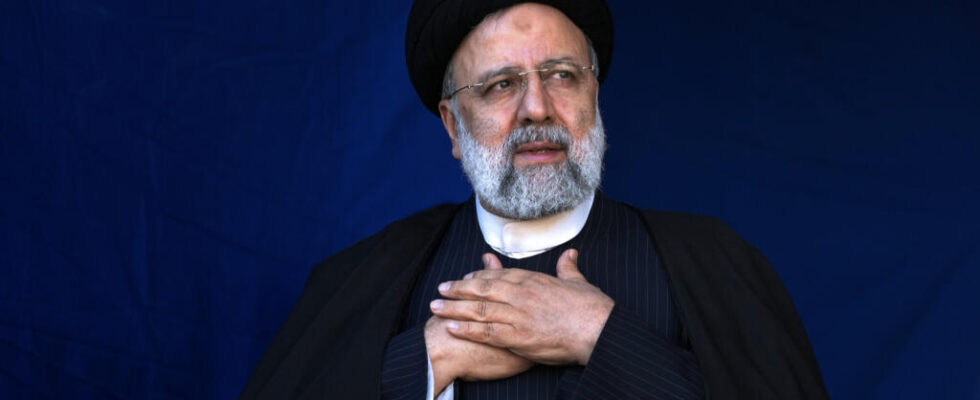Iranian President Ebrahim Raïssi died in a helicopter accident on Sunday, May 19, in the northwest of his country, an Iranian representative announced to Reuters on May 20. The Iranian president inaugurated a dam in the province, accompanied by his counterpart on the border with Azerbaijan. Since 2021, he has led Iran in a context of international trouble and internal protest.
3 mins
Intense searches have been underway since Sunday May 19 at the end of the day in the northwest ofIran to find the helicopter that was transporting him and which was the victim of an “accident,” according to officials and state media. Iranian Foreign Minister Hossein Amir-Abdollahian was also on board the plane.
Aged 63, Ayatollah Ebrahim Raïssi was considered an ultraconservative and an outspoken supporter of order. Having presented himself as the champion of the disadvantaged classes and the fight against corruption, Ebrahim Raïssi was elected on June 18, 2021 in the first round of a vote marked by a record abstention for a presidential election, and the absence of competitors weight.
He had succeeded the moderate Hassan Rouhaniwho beat him in the 2017 presidential election and could no longer run again after two consecutive terms.
Ebrahim Raïssi emerged strengthened from the legislative elections held in March and mid-May, the first national election since the protest movement which shook Iran at the end of 2022 following the death of Mahsa Amini, a young woman arrested for failing to comply with the Islamic Republic’s strict dress code. The Iranian president then welcomed “ a new historic failure inflicted on Iran’s enemies after the riots » of 2022.
Parliament, which will take office on May 27, will be largely under the control of the conservative and ultraconservative camps, which support his government.
Resolute adversary of Israel
In recent months, Ebrahim Raïssi has presented himself as a resolute adversary of Israel, the sworn enemy of the Islamic Republic, by providing his support to the Palestinian Islamist movement Hamas since the start, on October 7, of the war that Israel delivers him in the Gaza strip.
He thus justified the unprecedented attack launched by Iran on April 13 against Israel, with 350 drones and missiles, most of which were intercepted with the help of the United States and several other allied countries.
Ebrahim Raïssi is on the American blacklist of Iranian officials sanctioned for “complicity in serious human rights violations”, accusations dismissed as null and void by the authorities in Tehran.
Born in November 1960 in the holy Shiite city of Mashhad, in the northeast, Ebrahim Raïssi rose through the ranks of the judicial system for three decades, after being appointed prosecutor general of Karaj, near Tehran, at just 20 years old, in the wake of the victory of the Islamic Revolution of 1979.
He then served as Tehran’s prosecutor general from 1989 to 1994, then deputy head of the Judicial Authority from 2004 to 2014, the year he was appointed as the country’s attorney general. In 2016, Supreme Guide Ali Khamenei placed him at the head of the powerful Astan-é Quds Razavi charitable foundation, which manages the mausoleum of Imam-Réza in Mashhad as well as an immense industrial and real estate heritage. Three years later, he became head of the Judicial Authority.
Without much charisma and always wearing a black “seyyed” turban (descendant of Mohammed), Mr. Raïssi, with a salt-and-pepper beard and thin glasses, followed courses in religion and Islamic jurisprudence at theAyatollah Khamenei. No doubt aware that he had to try to bring together an Iranian society divided on the question of individual freedoms, he pledged during the 2021 electoral campaign to be the defender of “freedom of expression” and “fundamental rights of all Iranian citizens.
